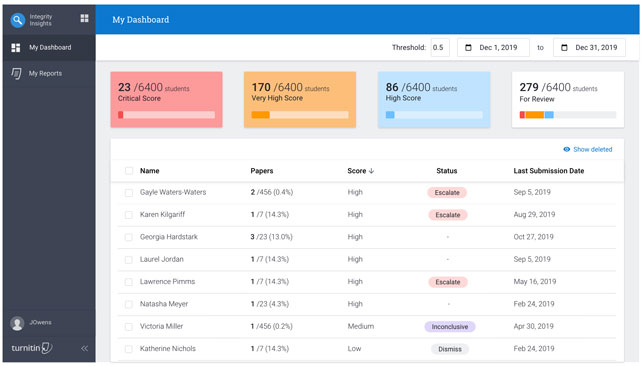Turnitin Expands Academic Integrity Checks

Turnitin Originality teacher dashboard
Turnitin has introduced an enhanced academic integrity solution with new features to help detect unoriginal coursework. Turnitin Originality combines traditional text similarity checking with technology designed to identify contract cheating. It looks for indicators that work was not authored by the student, by comparing an assignment to prior student work and analyzing document metadata, for example.
Students can use the tool to check their own work for text similarity and grammar, as well as find missing or incorrect citations.
"Supporting academic integrity is a multi-layered process of setting expectations, providing tools to students so they can self-check and correct, and then helping faculty to identify potential misconduct so that they can intervene," said Valerie Schreiner, CPO and CMO of Turnitin, in a statement. "Turnitin Originality gives instructors and administrators the capability of identifying the full range of potential misconduct in one tool so that instances of plagiarism or inauthentic authorship are teachable moments, not punitive ones."
"The rapid shift to online learning provides different opportunities for misconduct," commented Phill Dawson, associate professor and associate director of the Centre for Research in Assessment and Digital Learning at Deakin University in Australia. "While a holistic approach to academic integrity is advocated, it is likely that gaps will emerge. We must be continually updating the toolkit of support and detection measures."
For more information, visit the Turnitin site.
About the Author
Rhea Kelly is editor in chief for Campus Technology, THE Journal, and Spaces4Learning. She can be reached at [email protected].